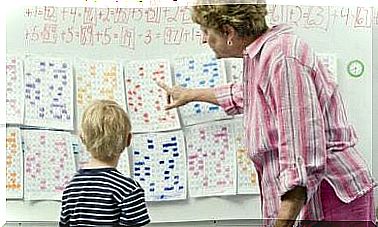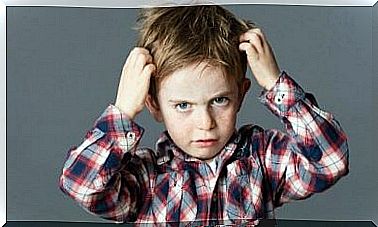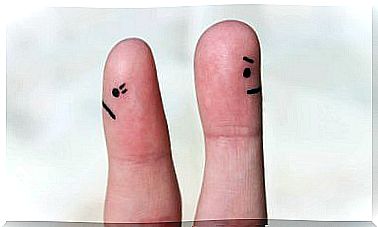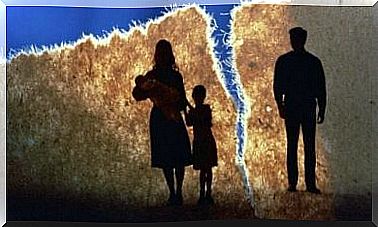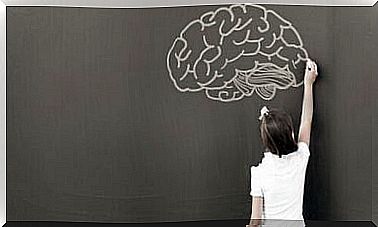Apologizing To Children Is Important
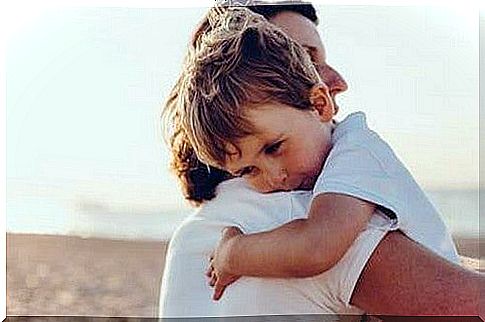
Apologizing to children means setting a good example. On the other hand, there are many parents who do not, perhaps in the belief that an adult should project an image of infallibility; proving to your children that you are wrong deprives us, according to some, of a bit of authority and credibility. Embracing this idea, however, is a surefire way to educate irresponsibility; it is a very important issue that is worth reflecting on.
An important goal for a parent or educator is to get the little ones to understand early on the importance of apologizing. You have to be firm on this point every time they make mistakes, tell a lie, act without thinking and end up behaving disrespectfully or imprudently. In short, knowing how to apologize is already part of the “ABC” in kindergarten.
Encouraging this attitude early on helps them to take into account the point of view of others, to be responsible for their own actions and, gradually, to regulate their own behavior. This way of acting, however, is not always assimilated by the child as much as we would like, and the reason is often evident. Adults demand something that they are not the first to do.
We don’t do it because it makes us uncomfortable, because showing ourselves to children as people capable of making mistakes causes a feeling of shame in us. Instead, it is a crucial question: apologizing to children improves the relationship and contributes to their education.
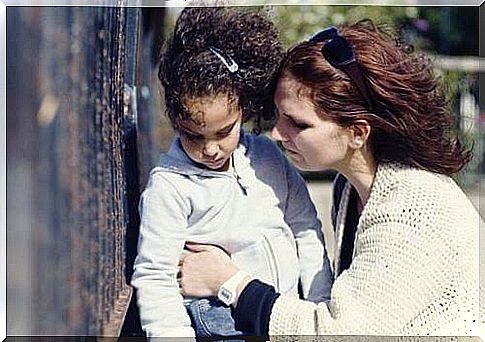
The importance of apologizing to children
To understand the importance of being able to apologize to children, think for a moment about a time when someone hurt, offended, or lied to you without apologizing for their behavior. It is a painful sensation, no doubt, but what is worse is that it tends to leave a wound that is not forgotten.
Keeping in mind that such an event makes us suffer, we can imagine the inner experience of a child who sees his father, mother, grandfather or a carer behaving badly. The contradiction and bitterness are even stronger. Additionally, if a child never hears the word “sorry” from a parent’s mouth, they will internalize the following concepts:
- Being in a position of authority means never being forced to apologize.
- You can hurt loved ones. There is no need to ask for forgiveness.
Is it really lawful or understandable to convey these ideas to our children? Evidently not. On the contrary, we need to work with children on the importance of apologizing from an early age. The study conducted by Craig E. Smith of the Cambridge University of Psychology warns us that a four-year-old already understands the emotional implications of apologizing.
What do we teach the child when we apologize to him?
Some behaviors are contagious. Prosocial behaviors have the ability to spread emotions and feelings and to generate change. Apologizing to children, when the situation requires it, contributes to delivering to our society adults more predisposed to cooperation, respect and coexistence. Therefore, what we teach with our gesture is:
- We can all make mistakes, adults and children alike. However, we all have a duty to recognize when we are wrong and to remedy the situation.
- Anyone who is ashamed of apologizing. However, doing so is a gesture of responsibility that generates well-being.
- Apologizing to another person will make them feel better and this is always good and necessary. Because in the end, the well-being of others is also ours and we all benefit from it.

When should children apologize?
Strange as it may seem, there are many situations in which we can misbehave:
- If we make a promise and we don’t keep it.
- When we scream. It is undoubtedly a very common phenomenon; in a stressful situation it is easy to lose your temper and raise your voice unwittingly. However, it is a behavior to be avoided and if it happens, you should apologize.
- If we have forgotten something that the child liked.
- When an unforeseen event prevents us from spending time with our children, as we would have liked.
- If we have been wrong or have offended them, even in some small way.
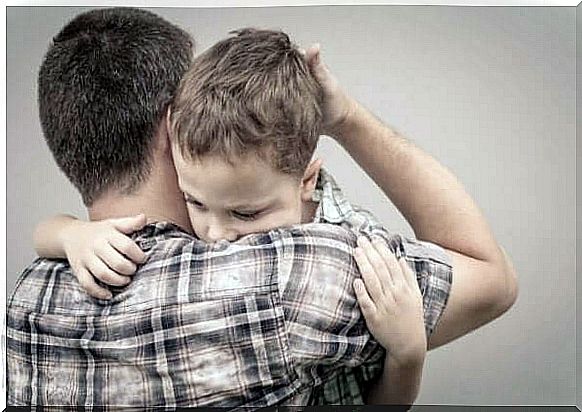
What’s the best way to apologize?
Knowing how to apologize correctly and effectively requires a certain skill, sensitivity and intelligence. It is not enough to apologize, you must also do it well. Here are some rules.
- A child may feel sorry for something that appears insignificant to us. Don’t give little importance to his emotions. When we recognize that we have made a mistake, we must give it due weight and sincerely apologize.
- Explain to the child the concrete reasons why you are apologizing. I’m sorry because I promised to take you to the movies, and I didn’t. Mom changed her shift and she had to go to work. I wanted to keep my promise, but it was not possible and for this I apologize.
- Furthermore, an important factor is immediacy. As soon as we realize we have done something wrong, we don’t have to wait to apologize. It is not right to unnecessarily prolong the child’s frustration or disappointment, it must be remedied immediately.
- Last but not least, it must be promised that we will work to ensure that it never happens again. Doing so – ensuring that we will improve our behavior and that we will care for them – is a way to educate, to lead by example. The child is encouraged to do the same and learns.
Being able to lead by example, to teach the value of forgiveness in a just and careful way helps to create a more humane and respectful society. Therefore, we encourage this good habit.

